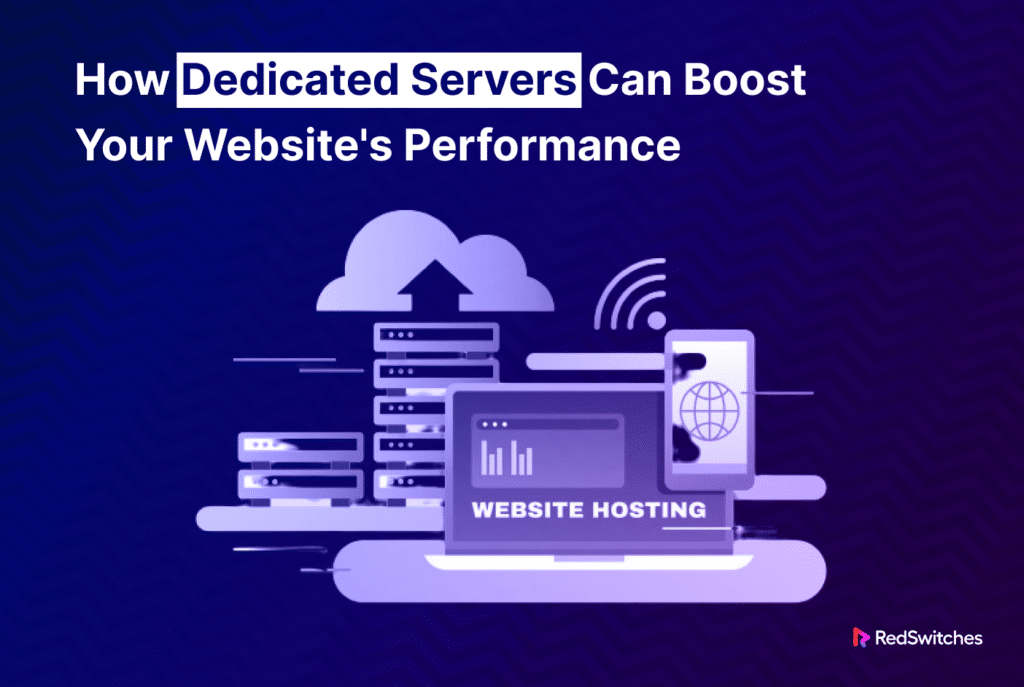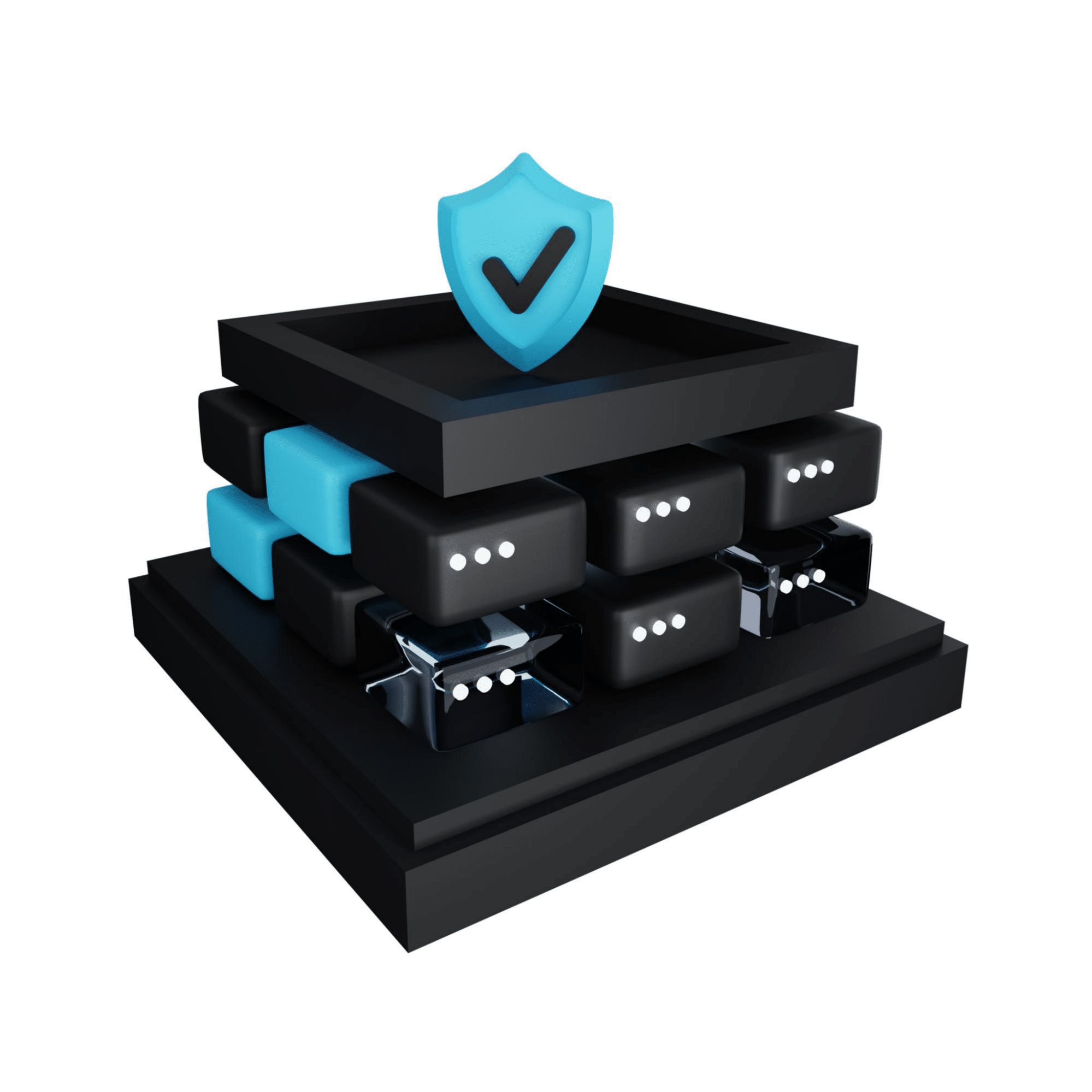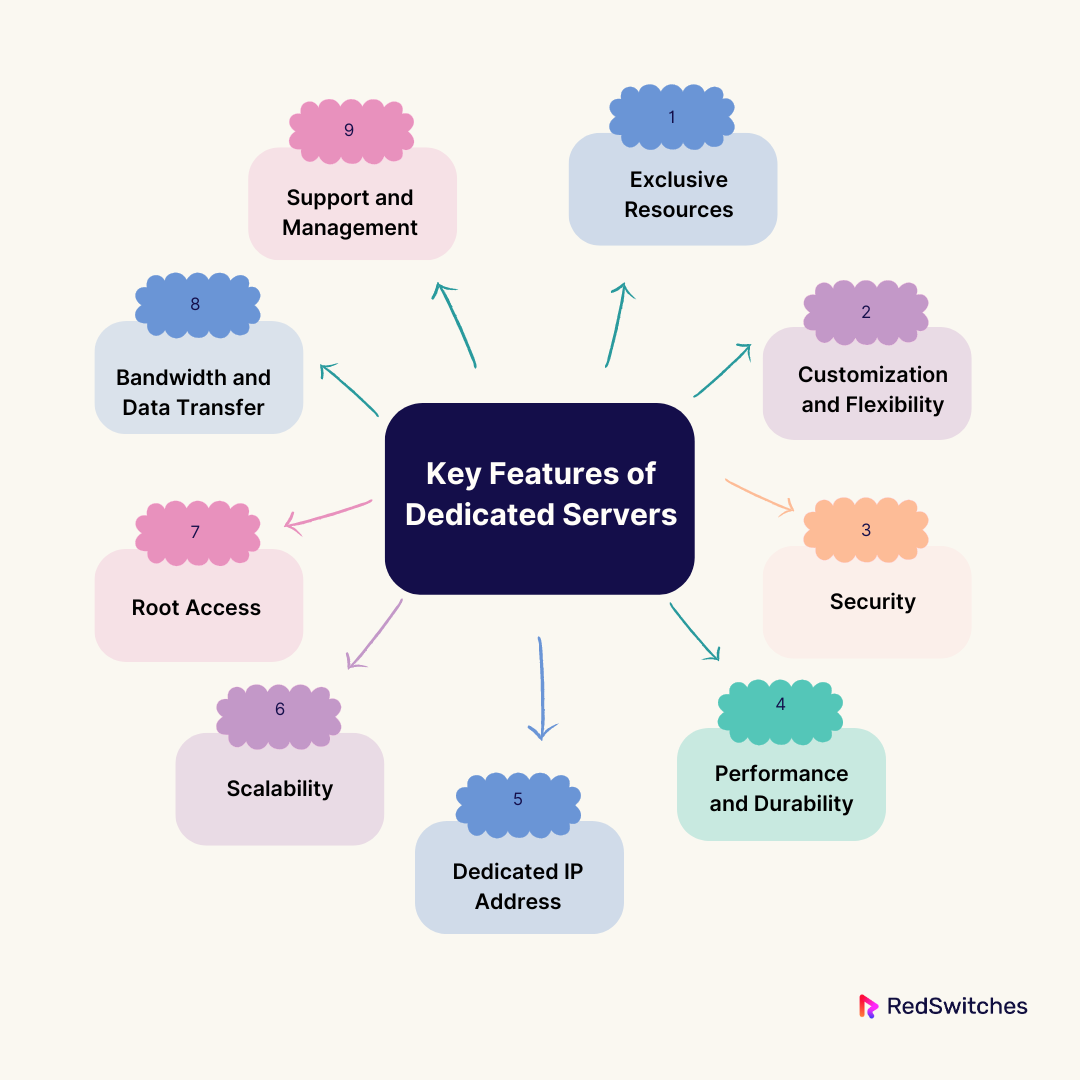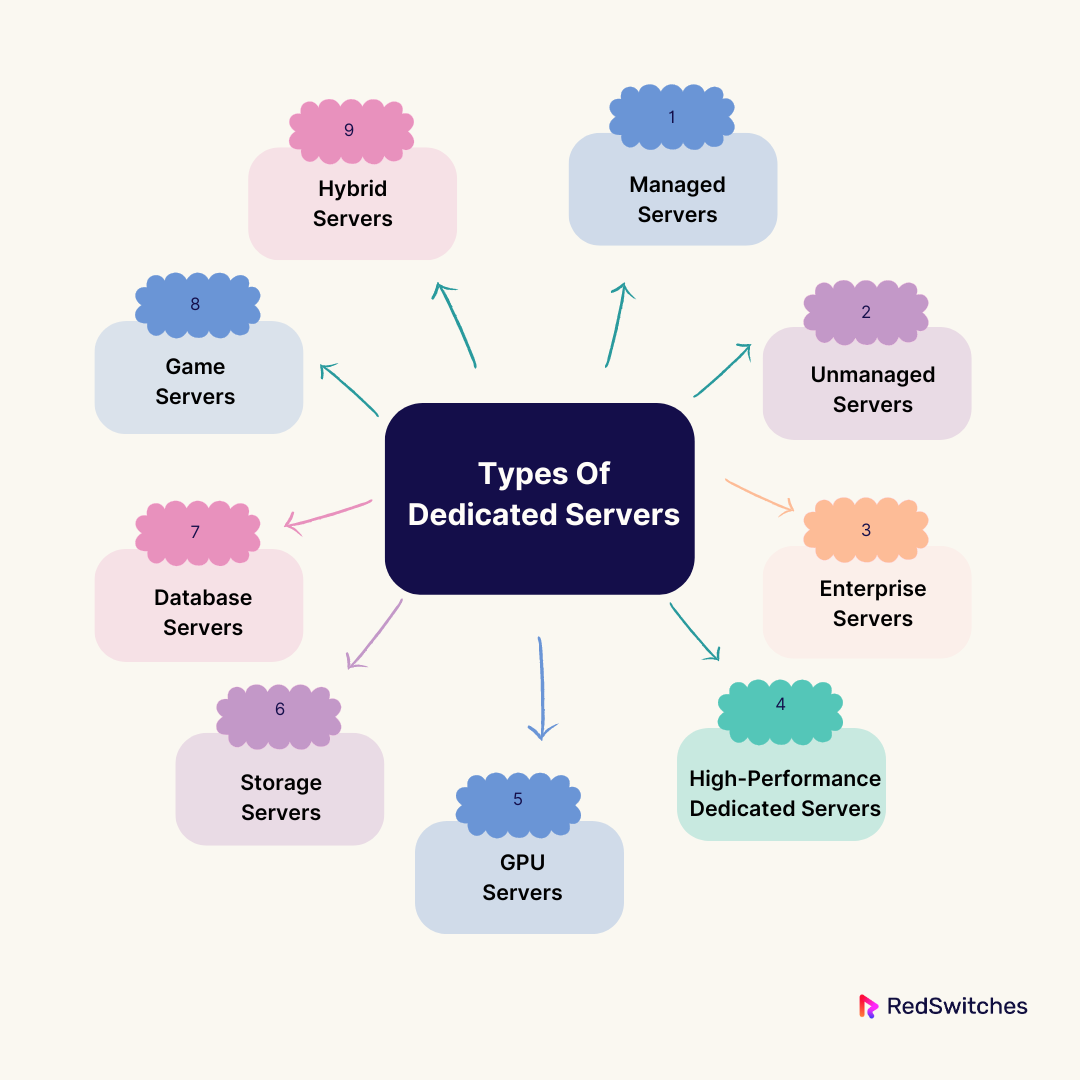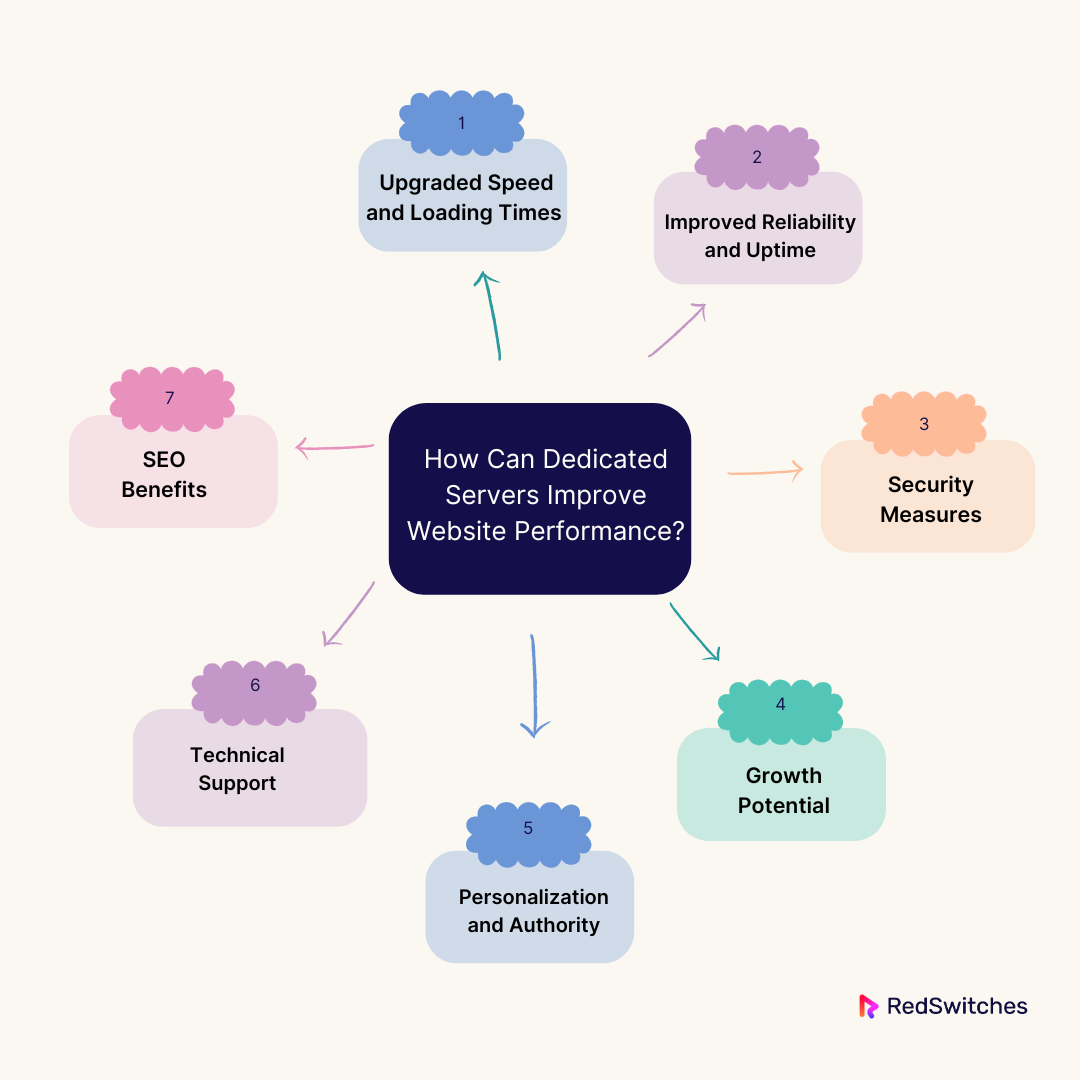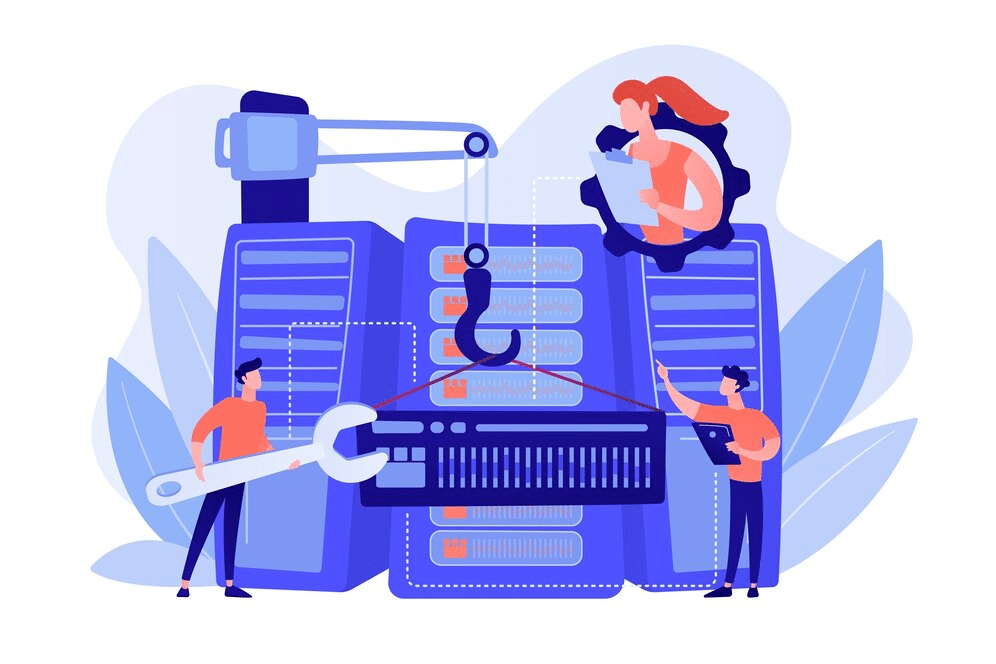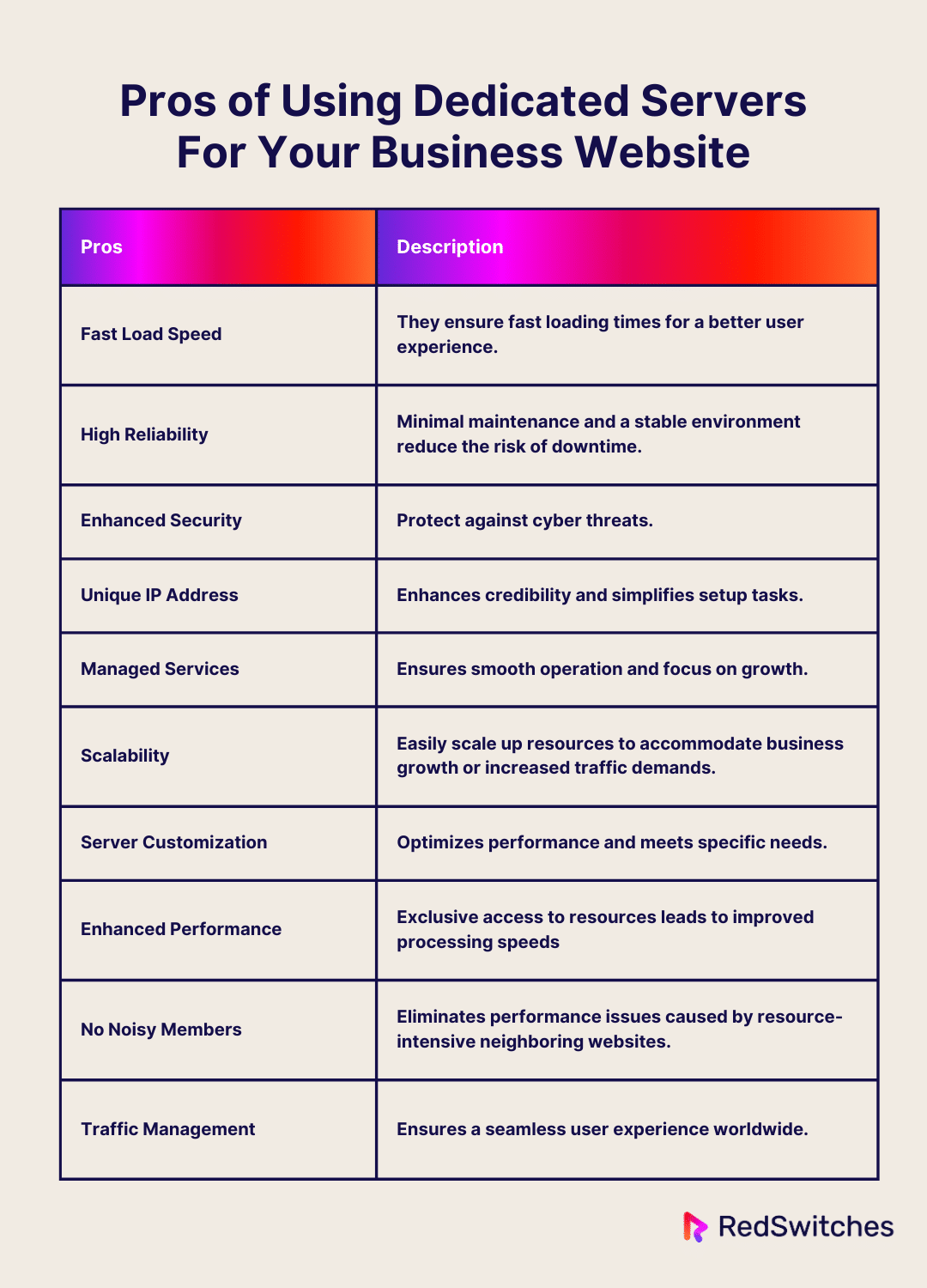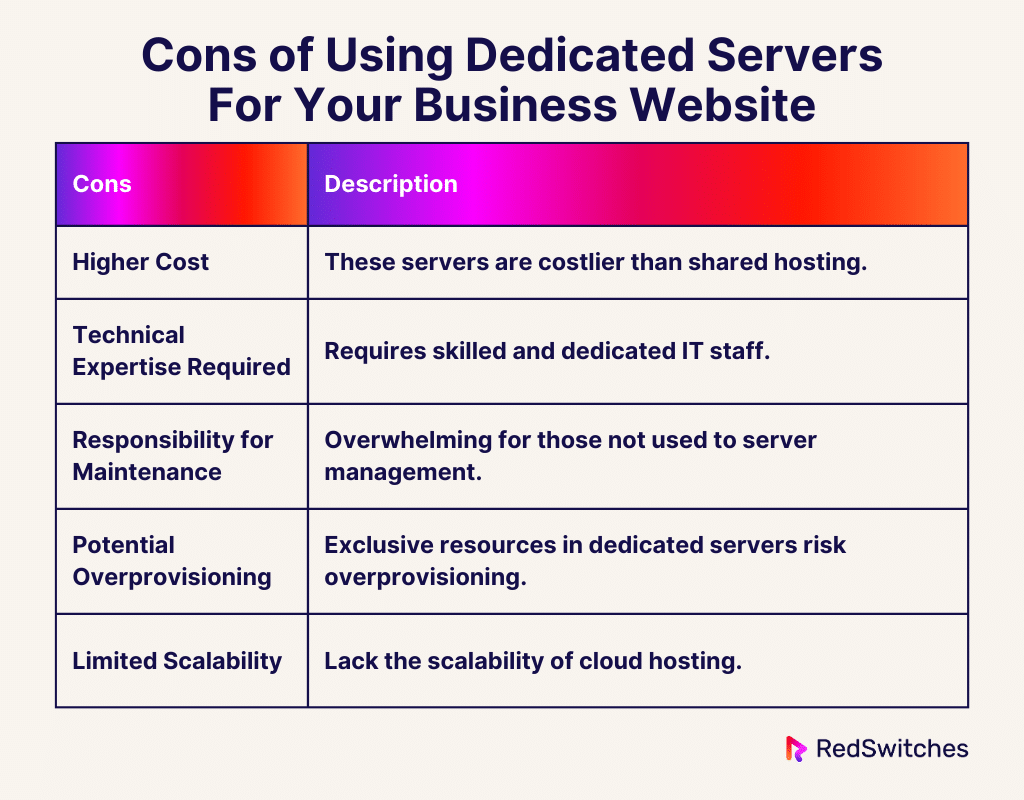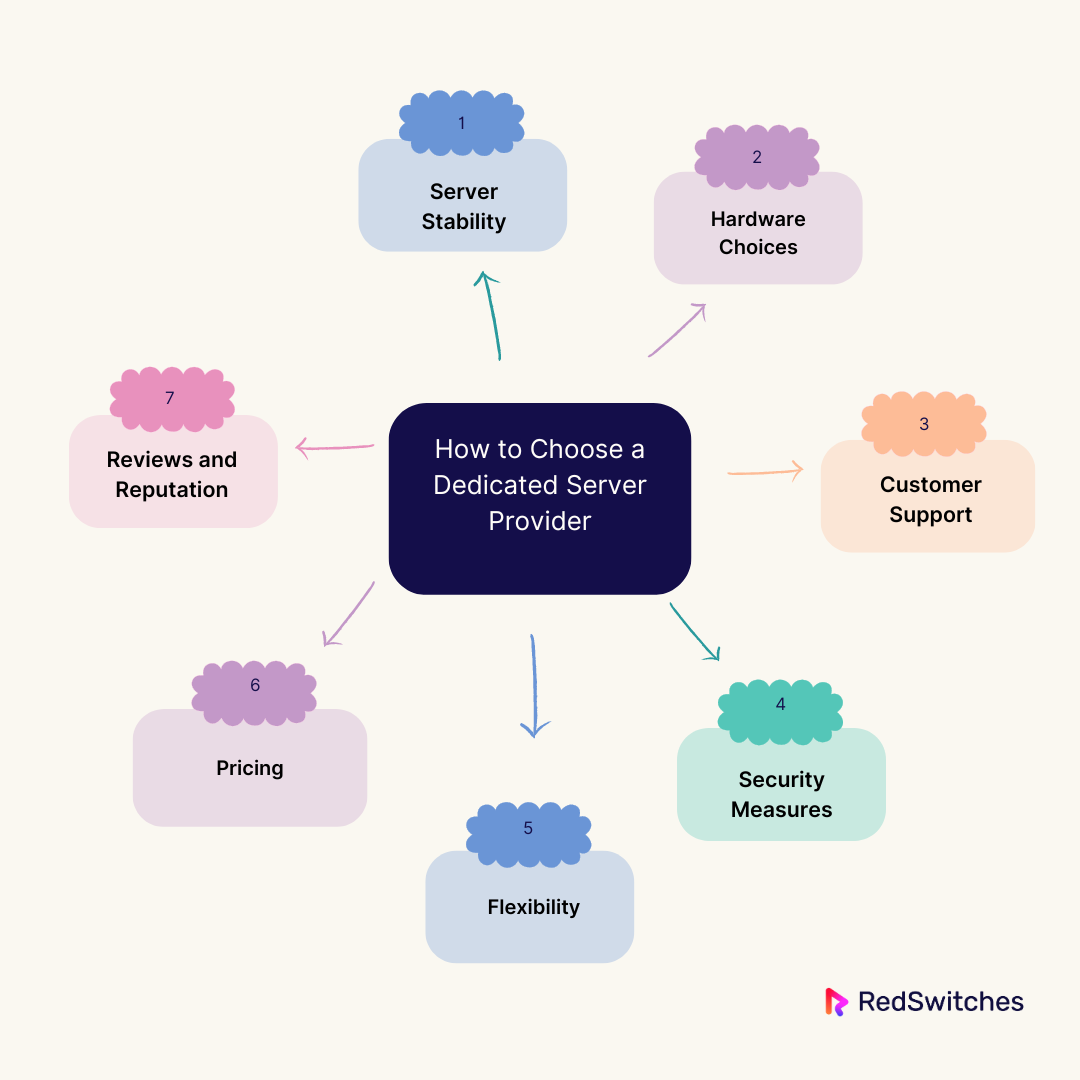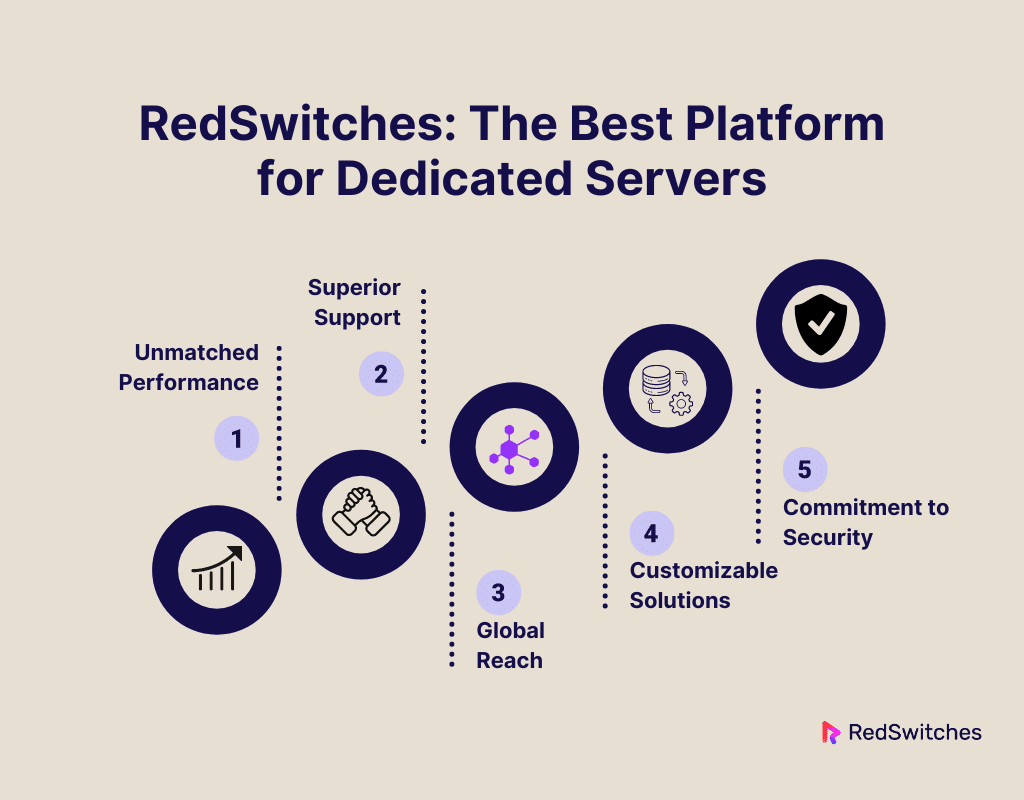Key Takeaways
- In the digital market, online presence is crucial for businesses, with 71% having websites in 2023.
- Optimal website performance is key, with servers vital for enhancing reliability.
- High-performance dedicated servers offer exclusive resources, customization, security, performance, reliability, and scalability.
- Various servers cater to specific needs, such as managed, unmanaged, high-performance, GPU, and hybrid.
- They improve website performance by enhancing speed, reliability, security, scalability, customization, and support.
- Pros of servers include fast load speed, reliability, security, unique IP address, managed services, scalability, and customization.
- Cons include higher cost, technical expertise required, maintenance responsibility, potential overprovisioning, and limited scalability.
- Increased traffic, customization needs, security concerns, performance requirements, and growth plans indicate a transition to dedicated cheap servers.
- When choosing a provider, key factors include server stability, hardware choices, customer support, security, scalability, pricing, reviews, and reputation.
- RedSwitches is highlighted as a leading provider offering unmatched performance.
The shift towards online commerce has made businesses understand the importance of online presence. It helps a business to stay competitive in today’s digital market and reach a wider audience. According to 2023 stats, 71% of businesses had their business websites.
In the digital age, where websites are at the forefront of businesses, ensuring optimal performance is paramount. Having a robust online presence is indispensable for businesses to thrive. The backbone of this presence is your website, which needs to be fast and reliable. Choosing the right hosting solution is one of the most critical decisions.
While several hosting options are available, servers are powerful for enhancing their website’s performance. This blog post will explore how best-dedicated servers can supercharge your website’s capabilities. Whether running an e-commerce platform or a content-rich blog, understanding high-performance dedicated servers that can elevate your website’s performance is crucial.
Table of Contents
- Key Takeaways
- What are Dedicated Servers?</a
- Types of Dedicated Servers for Website Performance
- How Can Dedicated Servers Improve Website Performance?
- Pros and Cons of Using Dedicated Servers for Your Business Website
- When Should a Business Site Switch to a Dedicated Server?
- How to Choose a Dedicated Server Provider for Your Website?
- Conclusion
- FAQs
What are Dedicated Servers?
Credits: Freepik
A dedicated server is a type of web hosting where a client leases an entire server not shared with anyone else. Unlike shared hosting, where resources are divided among multiple users, a server allocates all its resources to a single client. This setup gives the client full control over the server. That includes the operating system, hardware, and other configurations.
Also Read: The Beginner’s Checklist for Choosing a Dedicated Server Provider
Key Features
Servers offer features that make them a preferred choice for businesses with specific hosting needs. Here are the most notable features:
Exclusive Resources
One of the primary features of a dedicated cheap server is that all its resources, such as CPU, RAM, and storage, are exclusively allocated to a single client. This ensures that other users do not impact your operations, improving performance and reliability.
Customization and Flexibility
With a server, you can customize your setup to meet your specific requirements. This includes choosing your preferred operating system, software installations, and configuring settings to optimize performance.
Security
They provide enhanced security because you can control the server’s security configurations. You can implement custom firewalls, install specific security software, and take other measures to protect your data and users’ privacy.
Performance and Durability
Since you’re not sharing resources with other websites, servers offer superior performance, faster loading times, and higher uptime rates. This is particularly important for websites with high traffic volumes or demanding applications.
Dedicated IP Address
Each dedicated hosting server typically comes with at least one dedicated IP address, reducing the risk of IP blacklisting due to other users’ activities. This is crucial for businesses that use email servers or secure e-commerce websites.
Scalability
Although servers provide a fixed amount of resources, they offer scalability in terms of upgrades. You can easily upgrade your server’s hardware to accommodate growing traffic and resource needs.
Root Access
Clients often receive access to their servers, allowing them to install and manage any software without restrictions. This level of access is ideal for technical users who need to perform complex configurations or use custom software.
Bandwidth and Data Transfer
These servers often come with significant bandwidth and data transfer capabilities, accommodating websites and applications that experience high traffic levels or need to transfer large volumes of data.
Support and Management
Many server providers offer managed services, including 24/7 support, monitoring, and management options. This can be a crucial feature for businesses that lack the in-house technical expertise to manage a server environment.
These features make high-performance dedicated servers ideal for businesses and individuals with high-traffic websites, custom application needs, and stringent security requirements.
Types of Dedicated Servers for Website Performance
They can be categorized based on their intended use and hardware specifications. Here are some common types of servers you might encounter:
1. Managed Servers
Managed high-performance dedicated servers offer extensive support and management from the hosting provider. This includes server setup, software installations, security monitoring, technical support, and regular updates. They are ideal for businesses without a dedicated IT team or those focusing on their core operations.
2. Unmanaged Servers
Unmanaged servers provide minimal support from the hosting provider. The client manages the server, including software installation, security patches, and maintenance. This option suits technical users who require full control over their server environment.
3. Enterprise Servers
Enterprise servers are designed for large businesses and organizations with high-demanding workloads. They feature top-tier hardware, advanced security measures, and significant bandwidth capabilities. It is to handle large volumes of traffic and massive data processing tasks.
4. High-Performance Dedicated Servers
High-Performance Dedicated Servers focus on providing maximum computational power and speed. They have the latest CPUs, SSD storage, and high-speed memory. These servers are for apps that need intense resources, such as gaming servers and high-volume e-commerce sites.
5. GPU Servers
They have one or more Graphics Processing Units (GPUs) and the standard CPU. They are ideal for tasks that benefit from GPU acceleration. This includes machine learning, scientific computing, and 3D rendering.
6. Storage Servers
Storage-dedicated hosting servers emphasize high-capacity storage options. They are optimized for data-intensive applications like data backup services and large databases. These servers typically feature multiple HDDs or SSDs configured for redundancy and performance.
7. Database Servers
Database Servers are optimized for database management tasks. They offer fast storage solutions, high memory capacity, and powerful CPUs. This is to efficiently handle complex queries, large databases, and high transaction volumes.
8. Game Servers
Game dedicated hosting servers are specialized servers configured for hosting multiplayer online games. They offer low latency, high performance, and stability required to provide a smooth gaming experience.
9. Hybrid Servers
Hybrid servers combine the features of dedicated and VPS. It offers a balanced performance, flexibility, and cost-efficiency solution. They typically involve a physical server that is partitioned into multiple virtual environments. Each environment operates independently but shares the physical hardware with other virtual instances. This setup allows users to enjoy a hosting server’s security while benefiting from a VPS’s scalability and efficiency. Hybrid servers are ideal for businesses that need to scale their resources dynamically.
Each type of server serves a specific purpose and meets different technical requirements. Choosing the right server depends on your specific needs.
Since till now, we have been aware that a website’s performance and reliability are paramount. This is where the role of servers becomes crucial. But what exactly is the link between high-performance dedicated servers and websites? Let’s dive into the details.
These servers offer a hosting solution where a single server is allocated to a client or website. This exclusivity provides numerous benefits, including enhanced performance, security, and control. Unlike shared hosting, where resources are divided among multiple websites, a server ensures all its resources are directed toward operating a single site. This means websites hosted on dedicated hosting servers often experience faster load times. This is crucial for user experience and SEO rankings.
Servers are crucial for businesses looking to improve their online performance. They provide exclusive resources and total control. This significantly enhances a website’s functionality. Website performance greatly affects user experience and business results. Thus, these servers have become a key asset for those wanting to boost their online presence.
A server enhances website performance by providing exclusive resources and complete control. Let’s explore how.
1. Upgraded Speed and Loading Times
Dedicated hosting servers significantly boost website speed and loading times. In shared hosting, resources are split among many users. But a server gives all its bandwidth and processing power to just one website. This means your site can manage a lot of traffic without slowing down. Visitors enjoy a smooth experience.
Also Read: Improving Website Speed and Performance with Dedicated Server Hosting
2. Improved Reliability and Uptime
Affordable dedicated servers significantly reduce the risk of downtime. With a server fully dedicated to your website, you avoid common shared hosting problems. These include resource contention and overloading. Such reliability is vital. It helps maintain your brand’s reputation. Plus, it ensures your site is always available to users and potential customers.
3. Security Measures
Server security is a paramount concern for any online business. They enhance website security. They do not share space with potentially unsafe sites. This isolation allows for personalized security measures. You can implement firewalls, security protocols, and encryption. Each of these elements creates a strong defense against cyber threats.
4. Growth Potential
As your business grows, so do your website’s needs. They provide great flexibility. They allow you to scale resources as needed. This means your site stays efficient and quick, even with changing traffic. You can increase storage, bandwidth, and power easily. This is a big advantage over shared hosting, which often has strict limits.
5. Personalization and Authority
Credits: Freepik
Finally, servers provide unparalleled customization and control over your hosting environment. You can choose the operating system, software, and configurations that best fit your website’s needs. This control is crucial. It helps optimize performance, security, and user experience.
6. Technical Support
Access to expert technical support is a key benefit of servers. It boosts your website’s ROI. Experienced professionals handle server maintenance, troubleshooting, and updates. This allows you to concentrate on your business. Quick issue resolution, reduced downtime, and increased website efficiency are ensured. These aspects optimize your operations. They also enhance user experience.
7. SEO Benefits
Dedicated hosting servers also provide SEO advantages, positively affecting your website’s ROI. They ensure good performance and rapid loading times for an improved user experience. This can lead to lower bounce rates and more engagement. Furthermore, the speed, uptime, and customization capabilities can boost your search engine rankings. A high-performing, secure website tends to rank higher in search results. This boosts visibility, drives organic traffic, and may lead to more conversions. Ultimately, this enhances your business’s ROI.
Affordable dedicated servers offer numerous benefits. They significantly improve website performance with enhanced speed, reliability, security, and scalability. Investing in a server is wise for businesses focused on online presence and delivering the best user experience.
Pros and Cons of Using Dedicated Servers for Your Business Website
Credits: Freepik
Businesses often face a critical choice in web hosting. They must decide between shared hosting and servers. Shared hosting can be ideal for smaller websites with less traffic. On the other hand, larger enterprises might choose servers. These servers cater to their specific needs. Yet, this decision comes with its pros and cons. It’s important to weigh these before choosing a server solution.
Let’s delve into the pros and cons to help you make an informed decision for your business website.
Pros
Let’s look into some server advantages:
Fast Load Speed
With satisfactory dedicated servers, fast load speed is practically guaranteed. Your website exclusively uses the server’s hardware and network resources. This ensures faster loading times. Quick loading is essential for user experience and boosts search engine rankings.
High Reliability and Minimal Maintenance
These servers offer high reliability with minimal maintenance requirements. Shared hosting can lead to server performance issues due to neighboring websites. Servers offer a stable and consistent environment for your site. Since resources aren’t shared, there’s a lower risk of downtime. This is because server overload or maintenance by other users affects it less.
Compliance and Enhanced Security
Security is paramount in today’s digital landscape, especially for businesses handling sensitive data. Servers provide advanced security. They come with strong firewalls and intrusion detection systems. Regular security updates are also part of the package. This setup offers a better defense against cyber threats. It also supports businesses in meeting GDPR and HIPAA regulations.
Unique and Dedicated IP Address
Each server has its unique IP address. This provides a distinct identity for your website online. It boosts your site’s credibility. It also makes tasks like installing SSL certificates easier. Additionally, setting up email servers becomes smoother. There’s no risk of getting blacklisted due to others sharing your IP address.
Managed Services
Many server providers offer managed services. These services let businesses offload server management tasks to experts. Tasks range from initial setup and configuration to ongoing monitoring and maintenance. Managed services ensure smooth server operation. This allows businesses to focus on growth without technical worries.
Adaptability
They offer scalability to accommodate the evolving needs of your business. Dedicated hosting servers can scale up easily if you’re facing increased traffic or planning to grow online. You can upgrade hardware components or add more servers to your setup. This ensures your website stays responsive and accessible to users.
Server Customization
With dedicated cheap servers, you can fully control server customization. Servers let businesses choose their operating system and install software. This customization ensures the server meets specific needs. Configuring security settings enhances protection. Optimizing performance parameters boosts functionality. Thus, companies can ensure their server operates at their best.
Advanced Performance
Servers offer exclusive access to resources. This leads to better website performance. You’ll see faster processing speeds and improved data transfer rates. Also, latency is reduced. Thus, your website remains smooth and responsive, even at peak traffic times.
No Noisy Members
Shared hosting environments can suffer from “noisy neighbors.” These are resource-intensive websites on the same server that affect performance. In contrast, servers don’t have this issue. They provide consistent performance and stability for your website. This is because other users’ activities do not impact you on the same server infrastructure.
Traffic Management
They give businesses greater control over traffic management. Implementing load-balancing strategies improves traffic management. Optimizing server configurations helps handle traffic spikes. Leveraging content delivery networks (CDNs) distributes content globally. Dedicated affordable servers enable businesses to manage traffic effectively. They ensure a seamless user experience for visitors worldwide.
Cons
Higher Cost
One of the most significant drawbacks of high-performance dedicated servers is the cost. Its solutions come with a higher price tag than shared hosting due to exclusive access to resources and advanced features. This may not be feasible for small businesses with limited budgets.
Technical Expertise Required
Managing a server demands technical know-how. Alternatively, businesses must hire experts for server tasks. This includes setting up and configuring servers. Plus, there’s ongoing maintenance and problem-solving. For businesses lacking IT staff, it’s complex and time-consuming.
Responsibility for Maintenance
In shared hosting, the hosting provider handles server upkeep and updates. But, with servers, the business owner takes on these tasks. This responsibility covers software updates and security patches. It also includes backups and looking after the hardware. This can seem overwhelming for those not used to managing servers.
Potential Overprovisioning
Servers provide exclusive resources. However, there’s a risk of overprovisioning. This happens if your website doesn’t use all the allocated resources fully. Such a situation leads to wasted capacity. It also causes unnecessary expenses. Therefore, it’s crucial to estimate your resource needs accurately.
Limited Scalability
Dedicated hosting servers offer scalability through hardware upgrades. However, they lack the flexibility of cloud hosting. Cloud solutions excel in on-demand resource allocation. They also outperform in scalability. This can pose challenges for businesses experiencing rapid growth or fluctuating traffic patterns.
Choosing high-performance dedicated servers for your business website means balancing advantages and disadvantages. These servers provide unmatched performance, control, and security. However, they are more expensive and demand technical know-how for management. Knowing these trade-offs helps you decide. This decision should match your business aims and needs.
When Should a Business Site Switch to a Dedicated Server?
Credits: Freepik
Deciding on a dedicated hosting server switch is pivotal in your digital growth journey. While shared or VPS hosting suffices in the early stages, there’s a point where hosting servers offer too many benefits to ignore. Here are key indicators for determining the time to switch:
- Increased Traffic: A noticeable surge in website traffic is a clear sign. Shared hosting can be managed up to a point. But with growing popularity, you might encounter slower load times and less dependable service. If traffic growth is significant, consider moving to a server.
- Need for Customization: Feeling constrained by your current hosting solution’s limitations? A server could be the solution. You can install your preferred OS with full control over the server environment. It also includes software applications and adjusts server settings to suit your needs.
- Security Concerns: As your business expands, data value escalates. Handling sensitive customer data or strict compliance needs? A server’s enhanced security measures are crucial.
- Performance Requirements: Hosting resource-intensive content or managing complex applications? A server offers exclusive resources. This ensures smooth operations. It is beneficial for large multimedia files. It also benefits robust e-commerce platforms.
- Growth Plans: Foreseeing substantial business growth? Whether it’s an uptick in web traffic, more applications to run, or expanding your online store, transitioning to a server is wise. Its scalability facilitates smoother and more efficient growth transitions.
Transitioning to a server demands significant time and resources. However, if you notice any of these signs, its power, control, and scalability could support your business’s digital expansion.
How to Choose a Dedicated Server Provider for Your Website?
Selecting the ideal dedicated server provider is crucial. A reliable provider makes a big difference. It can lead to a high-performing website or a series of technical issues. Here’s a detailed guide on what to consider when choosing a dedicated server provider:
Server Stability
Look for providers giving high uptime guarantees, soaring at 99.9% or above. Uptime refers to how long a server stays up and runs without issues. It ensures your website or app stays available to users with minimal interruptions.
Hardware Choices
Choose a provider with a wide range of server configurations. This allows you to select the perfect match for your business needs. Consider the processor type, RAM capacity, storage medium (SSD or HDD), and bandwidth offerings.
Customer Support
A steadfast, round-the-clock customer support system is paramount. Emergencies can happen anytime. A quick customer support system can fix these fast. This reduces potential downtime.
Security Measures
Evaluate the provider’s repertoire of security protocols. This may encompass DDoS mitigation measures, robust firewalls, and vigilant malware detection systems. If you deal with sensitive data, check for SSL certificate options. Also, look into getting a secure private cloud environment.
Flexibility
With the progress of your company, your server requirements will likewise advance. Make sure your provider offers simple ways to upgrade your server resources, such as adding more storage, increasing bandwidth, or improving processing power.
Pricing
Servers usually cost more than shared or VPS hosting options. However, prices can vary widely between providers. It’s important to compare the cost and what’s included. Some providers add extra value with services like regular backups or full management of the server. This makes their offers more attractive even at a higher price.
Reviews and Reputation
Credits: Freepik
Finally, pursue user reviews and gauge the provider’s reputation. These testimonies offer crucial insights into a provider’s reliability. They show the quality of customer service and overall performance metrics.
Choosing a dedicated hosted server provider is a critical decision with long-term effects. Spend a lot of time and effort on thorough research. Make sure the provider you pick meets your current needs. It should also support and boost your business growth over time.
Also Read: Dedicated Server Security Features: A Comprehensive Guide
RedSwitches: The Best Platform for Dedicated Servers
RedSwitches is a premier option for acquiring dedicated server resources through rental or purchase. Here’s a detailed look at why they’re the preferred choice:
1. Unmatched Performance
RedSwitches prides itself on utilizing state-of-the-art hardware to ensure unparalleled website performance. By harnessing the latest technology, they guarantee fast and reliable service, enabling your website to operate efficiently.
2. Superior Support
With RedSwitches, you can expect top-notch customer support available round-the-clock. Their knowledgeable team is always ready to assist, ensuring that help is readily accessible whenever needed and any issues are promptly resolved.
3. Global Reach
Benefit from RedSwitches’ extensive network of global data centers. This global presence ensures that your website loads swiftly for visitors regardless of their geographic location, making it an ideal choice for businesses targeting an international audience.
4. Customizable Solutions
RedSwitches offers customizable hosting plans tailored to your requirements. Whether you need additional storage, higher bandwidth, or specialized security measures, their flexible solutions ensure that your hosting environment aligns perfectly with your needs.
5. Commitment to Security
Security is a top priority for RedSwitches, and they go above and beyond to protect your website and data from online threats. With advanced protection measures, you can rest assured that your online assets are safeguarded against potential security breaches.
Dedicated hosting is indispensable for websites that demand high performance, reliability, and security. RedSwitches provides an exceptional platform for dedicated hosting, backed by top-tier hardware, exceptional support, global reach, customizable solutions, and a steadfast commitment to security. It’s no wonder they’re considered a leading choice in the industry.
Conclusion
Speed and security are key for online success in today’s fast-changing digital world. You need reliable hosting if you manage an e-commerce site, a gaming server, or a data repository. Make your website fast and secure to succeed online. Choose strong hosting if you run a busy online store, host games, or store sensitive data. That’s where RedSwitches comes in.
Choosing RedSwitches means partnering with a reliable ally committed to enhancing your online success. Their state-of-the-art hardware infrastructure ensures seamless and expeditious operation of your website.
RedSwitches offers 24/7 support from a responsive team. It also has a global network of data centers. This ensures your website loads quickly, no matter where your users are. With RedSwitches, you get a hosting solution for your business’s unique needs.
FAQs
Q. How can I improve my dedicated hosting server performance?
To boost server performance, optimize server configurations, minimize resource-intensive processes, utilize caching mechanisms, and regularly monitor and optimize server resources.
Q. Is a dedicated private server faster than a shared one?
Yes, it is typically faster than shared hosting. It provides exclusive access to resources, ensuring better website performance and reliability.
Q. How much RAM do I need for a satisfactory dedicated server?
The amount of RAM needed for a satisfactory dedicated server depends on website traffic, application requirements, and concurrent user activity. Still, a minimum of 8GB RAM is recommended for optimal performance.
Q. Is a dedicated cheap server faster?
Generally, it is faster than shared hosting due to its exclusive access to resources. This results in quicker loading times and improved overall website performance.
Q. How do I increase server utilization?
Optimizing resource allocation, load balancing, implementing virtualization techniques, upgrading hardware components, and regularly monitoring and adjusting server configurations for optimal performance can increase server utilization.
Q. What is a dedicated hosting server?
Dedicated hosting server is where a client leases an entire server solely for their use, providing them full control over the server’s resources and configuration.
Q. What are the benefits of high-performance dedicated servers?
High-performance servers offer increased computing power, faster data processing, better website loading speeds, and enhanced reliability compared to shared hosting or lower-tier servers.
Q. How is an affordable dedicated server different from a virtual private server (VPS)?
A server provides a physical server exclusively for one client, while a VPS is a virtual partition within a larger server shared by multiple clients.
Q. What is meant by a managed dedicated hosting server?
Managed dedicated hosting server includes services such as server monitoring, maintenance, security updates, and technical support provided by the hosting provider, freeing clients from server management tasks.
Q. How can I configure my dedicated server?
Dedicated server providers typically offer control panels or management interfaces that allow clients to easily configure server settings, install software, and manage their hosting environment.
Q. What features should I look for in a high-performance dedicated server?
When choosing a high-performance dedicated server, consider factors such as processing power, memory capacity, storage options, bandwidth capacity, server management services, and security features like DDoS protection.
Q. What is the difference between fully managed and self-managed dedicated server hosting?
Fully managed dedicated hosting server includes comprehensive support services such as server setup, maintenance, security, and troubleshooting, while self-managed hosting requires clients to handle all server management tasks.
